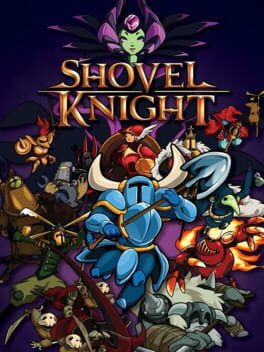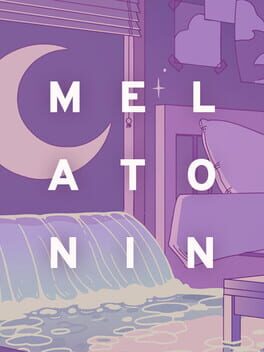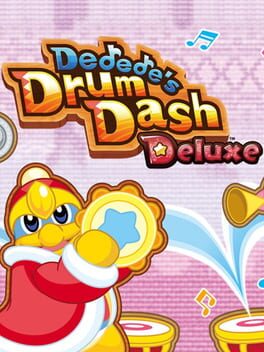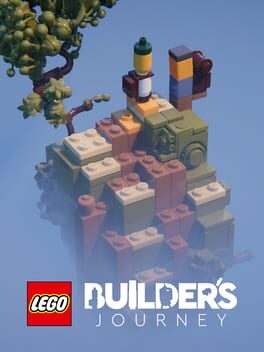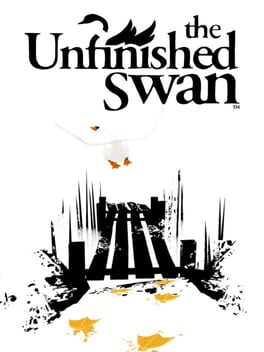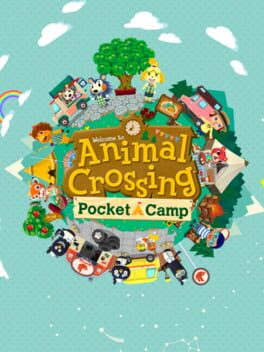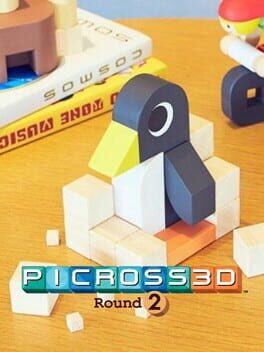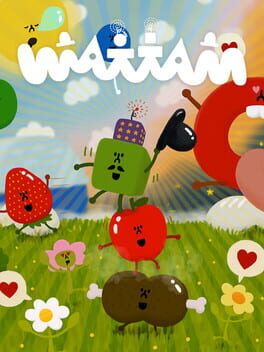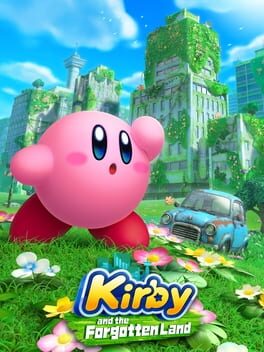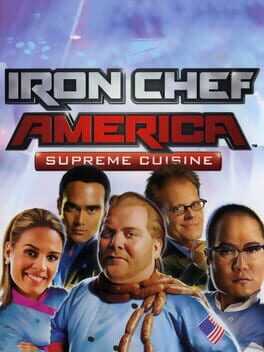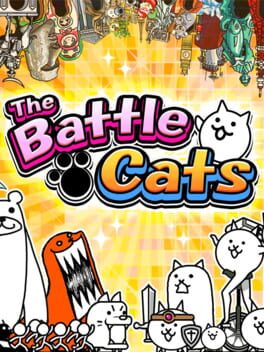Vasco
2014
The Wii was my first console, so I didn't grow up with the classics, the Megamans and Castlevanias that in part inspired Shovel Knight. Though Shovel Knight does lovingly capture the nostalgic feel of those classics, I didn't need nostalgia in order to love this game.
While there are a great many indie games that take advantage of pixel art (often for its low cost and approachability, understandably), few are so dedicated to replicating how things used to look. As an example, the color pallette was mostly limited to that of the NES. It's a limitation that required developers to get creative with what they had, and it's that creativity that makes SK feel both authentically "retro" and gorgeous in its own right. Every character design is impeccable and memorable, each with a distinct silhouette, color scheme, and gimmick, not unlike the iconic "mascot" characters of old. Visually, the levels feel like extensions of the characters, sharing their color palettes and feeling distinct. Shovel Knight himself has limited movement and a short attack range, his signature mechanic being to "shovel bounce" on enemies and obstacles. The game is challenging. You'll die a lot, perhaps more than you might expect due to the risky checkpoint and moneybag-retrieval mechanics. And still, I consider it to have some of, if not THE best level design of any platformer. Every stage is a new theme with new obstacles that are paced and iterated on near-flawlessly. That's not to say you won't get stuck on or frustrated by some difficult sections, but it's always fair and so satisfying to overcome. The plot takes full advantage of what little time it has, focused much more on personality, emotion, and charm, rather than lore or exposition. The presentation takes a simple "save the princess" story and makes it feel engaging and personal. I have little to no affinity for retro game music, as I often find the repetition and sharpness of the sounds irksome. That said, the soundtrack is nothing short of masterful. Every single tune was endlessly catchy and elevated every level or event.
Though built on the backs of the classics, to me, Shovel Knight IS the classic. One of the greatest games ever made, bringing the best of the past and the present together to make something truly timeless and utterly memorable. For shovelry!
While there are a great many indie games that take advantage of pixel art (often for its low cost and approachability, understandably), few are so dedicated to replicating how things used to look. As an example, the color pallette was mostly limited to that of the NES. It's a limitation that required developers to get creative with what they had, and it's that creativity that makes SK feel both authentically "retro" and gorgeous in its own right. Every character design is impeccable and memorable, each with a distinct silhouette, color scheme, and gimmick, not unlike the iconic "mascot" characters of old. Visually, the levels feel like extensions of the characters, sharing their color palettes and feeling distinct. Shovel Knight himself has limited movement and a short attack range, his signature mechanic being to "shovel bounce" on enemies and obstacles. The game is challenging. You'll die a lot, perhaps more than you might expect due to the risky checkpoint and moneybag-retrieval mechanics. And still, I consider it to have some of, if not THE best level design of any platformer. Every stage is a new theme with new obstacles that are paced and iterated on near-flawlessly. That's not to say you won't get stuck on or frustrated by some difficult sections, but it's always fair and so satisfying to overcome. The plot takes full advantage of what little time it has, focused much more on personality, emotion, and charm, rather than lore or exposition. The presentation takes a simple "save the princess" story and makes it feel engaging and personal. I have little to no affinity for retro game music, as I often find the repetition and sharpness of the sounds irksome. That said, the soundtrack is nothing short of masterful. Every single tune was endlessly catchy and elevated every level or event.
Though built on the backs of the classics, to me, Shovel Knight IS the classic. One of the greatest games ever made, bringing the best of the past and the present together to make something truly timeless and utterly memorable. For shovelry!
2022
For me, no other rhythm series can top Rhythm Heaven, and I can't get enough of its sweet, sweet rhythmic goodness. Melatonin is a clear spiritual successor to RH, but with its own unique visuals, music, and gameplay particulars. While I prefer the greater variety of music in RH, the lo-fi theme of Melatonin's is consistent and effective. It fits the dreamy atmosphere, and most importantly, supports the games they connect to. Sound effects and percussion overall are punchy and very satisfying to land. Any mistake made feels like my fault, not that of the tight, rhythm-accurate gameplay. The games feature very clever ideas related to dreams, scenarios based on something real going through a filter of silliness. The artwork is wonderfully charming, and though it can feel a bit samey, the pastel pallette is distinct and contributes to its dreamy theme. Even given the natural absurdity of the dream-based rhythm games, the look and feel makes it surprisingly relaxing.
As an aside, though I appreciate them wanting to keep things light, I strangely found myself wishing for more thematic depth. Having later stages (or "deeper dreams") called "Stress" or "The Future" could be very poignant, addressing those subconscious worries we all share. For example, in "The Past", you play by burning select photos or "memories", presumably unpleasant ones. It's a great idea for a rhythm game and it's one of the most satisfying to play, but the photos being blank feels like a missed opportunity. What if we had to determine which ones to burn partly based on whether the picture is of a good or bad memory? Lacking visual depth isn't a fault of the game per se, I just see more potential there.
All in all, I definitely recommend this, particularly if you're a Rhythm Heaven fan. Despite that inspiration, it does a great job being it's own, dreamy thing.
As an aside, though I appreciate them wanting to keep things light, I strangely found myself wishing for more thematic depth. Having later stages (or "deeper dreams") called "Stress" or "The Future" could be very poignant, addressing those subconscious worries we all share. For example, in "The Past", you play by burning select photos or "memories", presumably unpleasant ones. It's a great idea for a rhythm game and it's one of the most satisfying to play, but the photos being blank feels like a missed opportunity. What if we had to determine which ones to burn partly based on whether the picture is of a good or bad memory? Lacking visual depth isn't a fault of the game per se, I just see more potential there.
All in all, I definitely recommend this, particularly if you're a Rhythm Heaven fan. Despite that inspiration, it does a great job being it's own, dreamy thing.
As a rhythm enthusiast, it's always fun to try a rhythm game that can set itself apart mechanically, and this does that. You auto-jump to the rhythm, and (optionally) slap your tambourine on the offbeats. Avoid obstacles by timing your jumps in order to reach three specific heights. It's a weird setup, but I was surprised how natural it felt! There's a medal ranking system, and by getting through the stage efficiently, collecting all the coins, and mastering the backbeat, you can get the platinum, which is extremely satisfying to pull off. The soundtrack is comprised of remixes of legendary Kirby tunes, and while it's great to hear them, I personally feel that the remixes come across as a little too "dinky", lacking some punch of the originals. Though it was inexpensive, the game is surprisingly tiny, with only seven core stages and unlockable, more difficult variations of those same stages, recycling their music. Because of this small selection, I suspect those new to rhythm games will struggle with the steepness of the difficulty curve. These issues aside, I had fun honing my skills and getting platinums on every stage... Except the last one, which is a cruel marriage of tedium and repetitive stress injury. It doesn't count.
All in all, a short but satisfactory time for rhythm enthusiasts. Unfortunately this game is no longer available with the closing of the 3DS eShop, so... I don't know who this review is for. Myself, I guess?
All in all, a short but satisfactory time for rhythm enthusiasts. Unfortunately this game is no longer available with the closing of the 3DS eShop, so... I don't know who this review is for. Myself, I guess?
I've been a huge Lego enthusiast all my life, and while I've also enjoyed Lego's now-formulaic action game format, I was pleased to see them branch out into something more experimental. As there is no added licensed material to work with, I expected Builder's Journey to lean into Lego's own identity, particularly regarding creativity. And it does... a little. This is a puzzle game about getting a character from point A to point B. There are varying amounts of creative wiggle room for how you do this, but it's ultimately a puzzle game with a linear solution each time. In the few moments the puzzles are more challenging, the creative options almost disappear entirely. Granted, it's extremely difficult to make puzzles and options gel; I personally had some difficulty getting into Scribblenauts and parts of Tears of the Kingdom for this reason. The narrative is carried out with no dialogue and feels like it wants to have depth, but within the first ten minutes, I understood the message to be "work and monotony bad, child and fun good" and gathered nothing else throughout the rest of it. I ran this on a high-powered machine and fiddled with the very involved (and unclear) graphical settings, but ultimately could not get it to look any nicer than its Switch port (turn off film grain and motion blur at the very least). The environments are well-detailed and use many clever brick choices, but there is surprisingly little variety beyond grassy-craggy areas and dim, mechanical areas.
It's not a bad game, but I didn't get much out of it either. That said, I appreciate the attempt and I don't want Lego to give up on branching out.
It's not a bad game, but I didn't get much out of it either. That said, I appreciate the attempt and I don't want Lego to give up on branching out.
2012
This is a game that made quite the impression on me back in my PS3 days, where these artsy "experience" type indie games were less common. Painting your environment into existence is still a great concept, as are the later-introduced concepts of spraying water to create climbable vines and making blueprint blocks to climb. These gameplay elements, however, are not expanded upon too much; they're a novelty, but a really cool novelty, just interesting enough to propel you through the game's narrative. Said narrative is presented like a fairytale, and hovers somewhere between absurdist, charming, and provocative, though I personally wish it committed more to only one of these elements. Like other games of its ilk, what it all means is mostly left up to your interpretation, but it resolves in a satisfactory enough way regardless. There are minor collectibles, unlockables, and a brisk pace that makes finding everything not feel tedious. The visuals are very simple, but tactfully so, as your ink and vines are what make the mostly monochromatic world look distinct. The music is subtle and ethereal, appropriate for this type of game, but perhaps lacking in character.
I see massive potential to expand on both the game's story and gameplay mechanics, but as is, the Unfinished Swan is fairly straightforward, pleasant journey.
SPOILER:
...I just realized you never actually finish the swan, and I don't know how to feel about that.
I see massive potential to expand on both the game's story and gameplay mechanics, but as is, the Unfinished Swan is fairly straightforward, pleasant journey.
SPOILER:
...I just realized you never actually finish the swan, and I don't know how to feel about that.
Alas, this is actually an ok game at its core. Despite being scaled back, I think they did a good job squeezing Animal Crossing's look and feel into a mobile game. There's much less to do, but I think that's fine in something you might check for a few minutes a day. On paper, it's a match made in heaven, as Animal Crossing and mobile games both want you to fall into a routine and play it for a long time. The critical difference, to me, is in Pocket Camp's timed events. Some events are seasonal/annual, which the console games do as well, but other events are limited, and may or may not return. Animal Crossing is a relaxing routine, yes, but if you feel like you can't leave it without "missing out", it's not so relaxing anymore.
Of course, this comes down to the FOMO tolerance of the individual player. If you have no issue with temporary game elements passing you by, you may enjoy the routine. At the time of me playing it, Pocket Camp was surprisingly lax in its monetization efforts, and nothing was behind a paywall that you couldn't get otherwise. In lieu of games with a price tag, I'd cautiously say you could do much worse for a free-to-play.
Of course, this comes down to the FOMO tolerance of the individual player. If you have no issue with temporary game elements passing you by, you may enjoy the routine. At the time of me playing it, Pocket Camp was surprisingly lax in its monetization efforts, and nothing was behind a paywall that you couldn't get otherwise. In lieu of games with a price tag, I'd cautiously say you could do much worse for a free-to-play.
2015
I've been a huge Picross fan for a while now. In fact, I'm that jerk who doesn't use the X's in order to up the challenge. But I had only played the free, mobile Picross, thinking it was so simple that there was nothing to be added in a premium price version. I then find Picross 3D: Round 2 with a demo, and my perspective totally changed. Adding a third dimension is already cool and original, but it's integrated so elegantly. It's inseparable from the 3DS, in that I can't imagine a more fast, fluid, and precise way to play it other than the button and stylus combo. It feels as natural as rotating a Rubix Cube in your hands. The gameplay is akin to its 2D Picross counterpart, but is brilliantly retooled to feel almost like "paint-by-numbers sculpting". Finding the form within is endlessly satisfying- which is good, because the sheer amount of levels feels endless! There are plenty of difficulty options to cater to any level of puzzler, even the hardcore type like myself. Visually, the game is clever in how it justifies the cuboid Picross squares, by simply making them look like physical wooden blocks! Additionally, there is a boundless variety of subject matter, from people who truly understand how to make simple look charming, rather than boring. That little penguin in the thumbnail explains it better than I can. Every single thing you "carve" even comes with its own little text description!
In conclusion, it's a game with a familiar yet inventive premise that does its job to perfection, and is a must play for any Picross fan!
Sadly, with the retiring of the 3DS eShop, the game is no longer available for purchase digitally; however there are still Japanese-only physical copies at good prices. It's still worth braving the language barrier!
In conclusion, it's a game with a familiar yet inventive premise that does its job to perfection, and is a must play for any Picross fan!
Sadly, with the retiring of the 3DS eShop, the game is no longer available for purchase digitally; however there are still Japanese-only physical copies at good prices. It's still worth braving the language barrier!
2018
My heart belongs to Nintendo, but every so often Playstation gets a game that has me looking over my shoulder like the distracted boyfriend meme. I hadn't played the previous God of Wars, and had only seen my roommate play the first boss fight against Baldur. It left quite the impression! The performances (voiced and animated) were stellar, the story, despite having only just begun, was gripping, the visuals were beautiful, the music was intense, and the pacing/directing felt of cinematic quality, despite keeping the player in control! I waited patiently and eventually it found its way to PC. At long last, I'm happy to report that these qualities persist throughout the entirety of the game. The combat is very satisfying with just enough depth and customization without becoming overwhelming. The set pieces and events are stunning and varied, even into the endgame, bringing Norse mythology to life in a way that still feels distinctly God of War. Kratos and Artemus are developed and believable, both playing into strong themes of taking responsibility for your actions in both the past and present. Really my only hangups were in regards to restrictive fast travel and tiresome backtracking for completion- though that's to be expected from most any proto-metroidvania.
It's as great as everyone says, and a surprisingly good entry point into the franchise. As Kratos always says, "BOY!"
It's as great as everyone says, and a surprisingly good entry point into the franchise. As Kratos always says, "BOY!"
2019
So... it's hard to know how to evaluate a game like this, and thus, I can't evaluate it in stars. The presentation is solid, if simple. The characters are cute, it can be funny, surprising, and wholesome at times, and the dynamic soundtrack is my favorite thing here! Despite enjoying a lot of the weirdness and charm, I couldn't fall in love with it like I did Katamari Damacy, with which Wattam shares developers, and I think most of that comes down to gameplay. The camera feels bad on PC, even at max sensitivity, sluggish and awkward. The primary hand-holding, friend-climbing, and hat-bombing systems all work great, but there's little structure to support these mechanics. Sometimes they're used to good effect, like forcing a doll to relax long enough to apply its facial features, but mostly feel wasted and boring when your goal is simply "bring three things to a house". The goals are so basic that it doesn't seem to qualify as a game, but that's the thing: I don't think that's what Wattam was going for. It's a toy chest, a bunch of wacky digital friends to mess around with. Perhaps my experience was hampered by my expectations and not playing multiplayer, but at the end of the day, this game was not for me.
But I mean it when I say, I am THRILLED that it exists, that there's a space for creators to be unabashedly silly, and a space for gamers to make their own fun. If that sounds like your kind of experience, hop in, hold hands, and Wattam!
But I mean it when I say, I am THRILLED that it exists, that there's a space for creators to be unabashedly silly, and a space for gamers to make their own fun. If that sounds like your kind of experience, hop in, hold hands, and Wattam!
This makes the third time that Nintendo has brought one of their 2D mascots into 3D, near-flawlessly, first try.
(I mean, they kinda tested the concept in Planet Robobot first but shhhh)
Seriously though, it's one of my favorite games of all time and a must-play. The movement and power-ups have been retooled for a 3D space and they feel super satisfying. There's a marvelous variety of settings, enemies, puzzles, stunning music, and oh mama, some creative as heck bosses. One of the best looking games on the Switch in terms of both graphics and aesthetics. Though generally easy and approachable for little kids, it never feels dull or stops you from playing at the pace you want. Detail, charm, and surprises continue even into the latest portions of the game. I hope you have much fun with this as I did!
(I mean, they kinda tested the concept in Planet Robobot first but shhhh)
Seriously though, it's one of my favorite games of all time and a must-play. The movement and power-ups have been retooled for a 3D space and they feel super satisfying. There's a marvelous variety of settings, enemies, puzzles, stunning music, and oh mama, some creative as heck bosses. One of the best looking games on the Switch in terms of both graphics and aesthetics. Though generally easy and approachable for little kids, it never feels dull or stops you from playing at the pace you want. Detail, charm, and surprises continue even into the latest portions of the game. I hope you have much fun with this as I did!
My mom liked the show when we bought this. We did not like the game. I don't remember the motion controls being "the worst", but there was next to no challenge or variety. You perform a few dirt-simple, finicky, linear tasks, and that's your play session right there. Your reward is the judges cycling through their three lines each of recorded dialogue. What little is there is functional, and that's it. Fake cooking should be as least as fun as real cooking, yeah?
2011
The main selling point of this game are the visuals and comedy, which are quite goofy and charming- at least before they realized how popular anime girls were and Fortnited some of the game's identity away. The type-counter-system thing is pretty decent, and I did enjoy beating a few of the story modes. Beyond that? You're in for a total slog. There is no care whatsoever whether gacha units are remotely viable or not, and as there are no viewable stats to speak of, making the ability of units you want a matter of guesswork or Wikipedia investigation. There have been dozens of free seasonal units given out, about three of which are even usable. Don't bother going for specific cats- two years of FTP tickets used on the same pool and never got what I was after. The most fundamental flaw of this game pops up later on, when you're absolutely required to analyze the precise timing, ability, range, etc. of enemies if you want a chance at winning (none of which is knowable via in-game information). The visuals of dozens of cats overlapping each other will completely obscure what you or the enemy is doing. I could barely even follow guides for this reason. The music (of which there are only a few tracks spread over a hundred+ stages) sounds cheap and doesn't even loop correctly. I'm sorry, but I'm frustrated to have spent so much of my time on this dopamine snare. It's awful. I implore you, spend your money on a real game.
